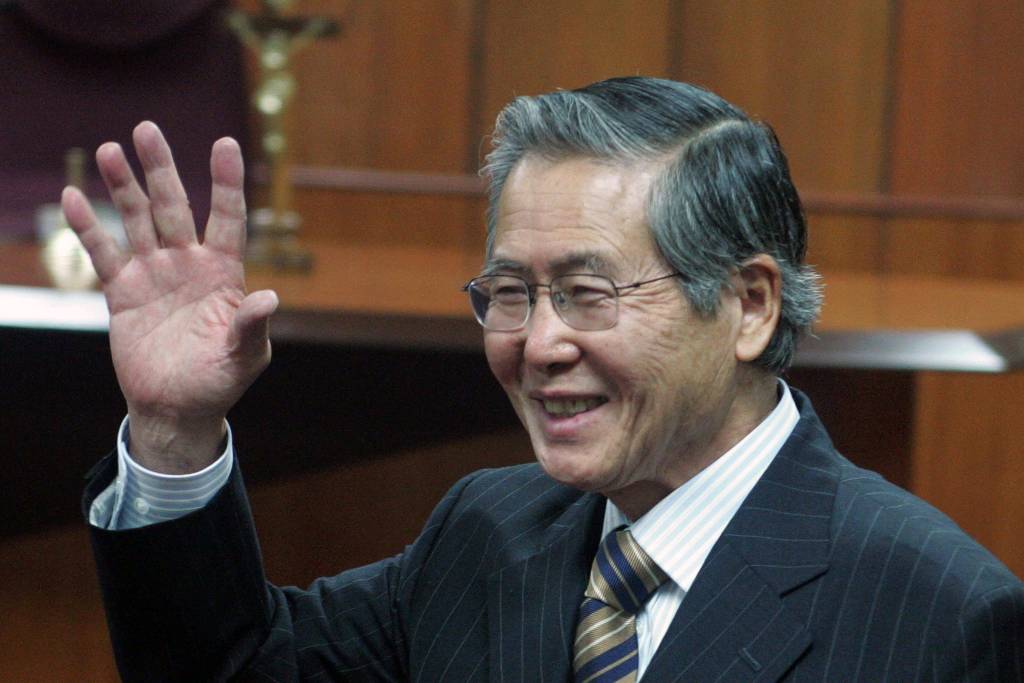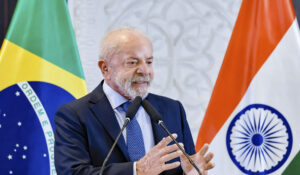
Published 12/09/2024 15:15 | Edited 12/09/2024 16:34
Former Peruvian dictator Alberto Fujimori died this Wednesday (11) at the age of 86 due to tongue cancer. The news was released on social media by his daughter, the country’s far-right leader, Keiko Fujimori. The dictator leaves a legacy marked by authoritarianism and human rights violations.
“After a long battle with cancer, our father, Alberto Fujimori, has just gone to meet the Lord. We ask those who loved him to join us in prayer for the eternal rest of his soul. Thank you for everything, Dad!” announced his children Keiko, Hiro, Sachie and Kenji Fujimori.
According to his daughter, the burial will take place on Saturday (14), when Alberto Fujimori’s body will be taken to the Campo Fé cemetery, in Huachipa, also in Lima.
Fujimori won the 1990 presidential election as an unknown candidate under the banner of Cambio 90 (“cambio” means “change”) defeating writer Mario Vargas Llosa in a surprising upset.
During his first term, Fujimori enacted sweeping neoliberal reforms known as “Fujishock.” The economic plan had broad support from the IMF, which, pleased with the Peruvian government’s measures, secured loan financing for Peru.
On April 5, 1992, Fujimori dissolved Congress, closed the Judiciary, the Public Prosecutor’s Office, the Constitutional Court and the Judiciary Council, in collaboration with the Armed Forces.
He initiated a policy of repression against the Shining Path guerrillas, which led to the defeat of the organization. The repression carried out by the Fujimori dictatorship was initially welcomed by some Peruvians, but the action against the guerrillas was accompanied by numerous summary executions, forced sterilizations, and widespread corruption.
The internal conflict resulted in almost 70,000 deaths and disappearances. In addition, more than 270,000 women and 25,000 men, often poor, illiterate and from indigenous peoples of the Amazon and the Andes, were forcibly sterilized between 1996 and 2000.
Alberto Fujimori would later be found guilty of ordering the murder of 25 people during massacres carried out in the early 1990s by the Colina group, a death squad of the Peruvian Army.
Bringing up the political history of the dictator, who was legitimately elected in 1990, the Peruvian newspaper La Republica highlights that Fujimori “died without acknowledging his crimes”.
The newspaper refers to the various human rights violations committed during his government (1990-2000), such as the massacres of Barrio Alto (1991) and La Cantuta (1992), for which he was convicted by the courts in 2009.
It was not human rights violations that ultimately brought about Alberto Fujimori’s downfall, but a conviction for bribery. He fled to Japan in 2000 and was arrested five years later in Chile, from where he hoped to attempt a return to politics. Extradited to Peru, he was sentenced in 2009 to 25 years in prison for crimes against humanity and corruption.
In late 2017, President Pedro Pablo Kuczynski, mired in the Odebrecht corruption scandal, granted him a presidential pardon on “humanitarian” grounds and ended up resigning a few months later to avoid impeachment. The pardon granted to Fujimori was canceled by Peruvian courts, despite appeals filed by him and his family, and was later reinstated in 2023. This latest turn of events allowed the former president to leave prison before the end of his sentence.
The former president nicknamed “El Chino” (the Chinese), who deeply divided the country, was diagnosed in May with a malignant tumor on his tongue. In 2018, Fujimori made public the diagnosis of a lung tumor.
Source: vermelho.org.br

